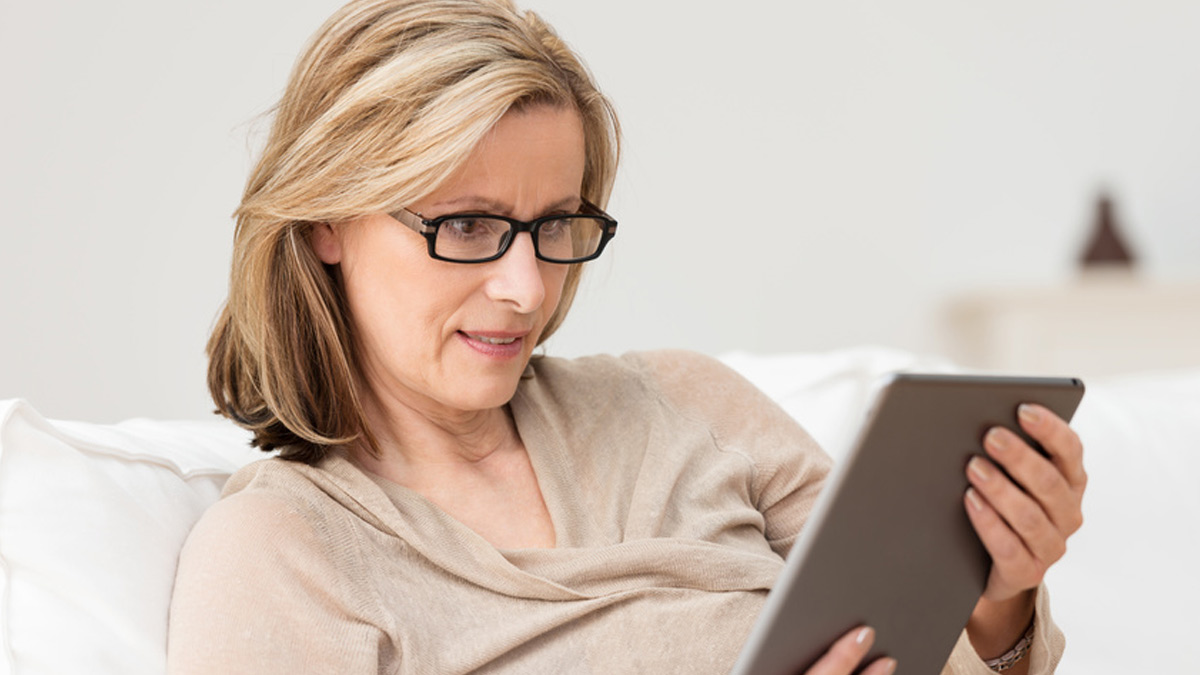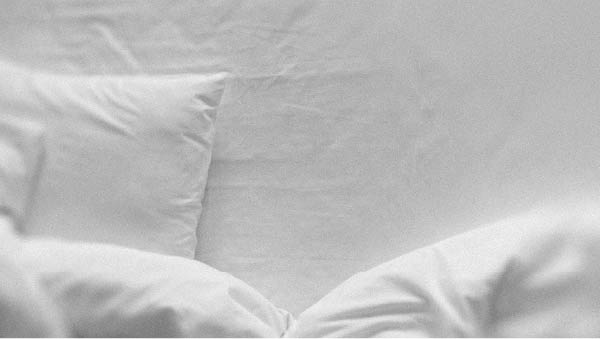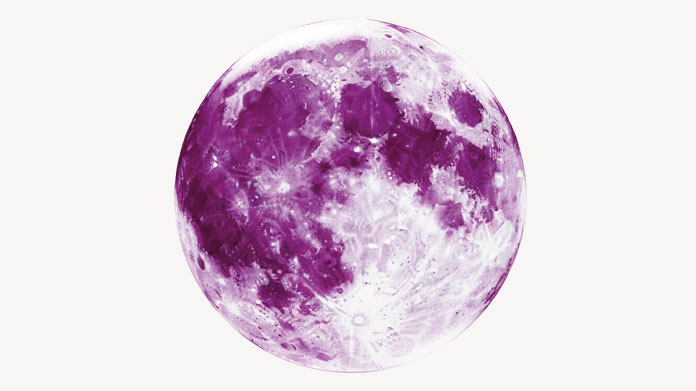Too much screen time: how can we protect ourselves from blue light?
Smartphones, tablets, computers, televisions ... these days, screens are omnipresent in our daily lives. Unfortunately, though, they emit blue light which can have a number of adverse effects.

What is blue light?
Increasingly present in our day-to-day lives, screens expose us to blue light, a visible part of the electromagnetic spectrum. In fact, there are different types of light rays – some visible, such as blue light, and others invisible, such as ultraviolet or infra-red. When visible light rays enter the eyes, a message is sent to the brain which then interprets them as what we see.
Each ray in the light spectrum has a specific wavelength and a different colour. Characterised by a wavelength between 380 and 500 nanometres, blue light actually includes a range of colours from ‘blue-turquoise’ to ‘blue-violet’. Specialists tend to distinguish between ‘blue-turquoise’ which has an effect on the sleep/wake cycle, and ‘blue-violet’ which is harmful to eye health.
What are the consequences of overexposure to blue light?
Many experts are sounding the alarm over the risks of too much exposure to blue light. It can have a number of effects on the body, particularly the eyes, with red eye, stinging, or a burning sensation among the common symptoms of excessive exposure to ‘blue-violet’ light. These symptoms indicate eye fatigue which is often accompanied by dry eye, headaches and migraine.
Excessive exposure to the ‘blue-turquoise’ light emitted by screens can also have an effect on the quality of our sleep as it stimulates the retina and disrupts the synthesis of melatonin. Often referred to as the ‘sleep hormone’, melatonin plays a key role in sleep-wake phases. Sleep problems such as falling asleep, insomnia, or difficulty waking up, can all be caused by the ‘blue-turquoise’ light emitted by our screens.
What are the long-term risks?
A number of scientific studies have investigated the long-term impact of blue light. Researchers believe that prolonged exposure could have irreversible effects on the eyes. It may cause premature ageing of the eyes and the development of vision problems, particularly age-related macular degeneration (AMD) and cataracts. This is why eye specialists are calling for better prevention against the risks of blue light.
What solutions are available for protecting ourselves against blue light?
While the best response would be to reduce our exposure to blue light, this is increasingly difficult given how screens now dominate daily life for many of us. Nonetheless, vision and sleep specialists do recommend cutting down our screen time and exposure to blue light as much as possible, particularly before going to bed. For a few years now, opticians have also been suggesting we wear blue light-blocking glasses to reduce the risks to our eyes.
Another way of protecting ourselves against the dangers of blue light is to boost the eyes’ defences with the aid of natural compounds. Lutein, for example, is a substance known to play a protective role in the retina. A yellow pigment from the carotenoid family, it works both as an ‘anti-blue light filter’ and an antioxidant. Other natural antioxidants, such as anthocyanosides from blueberries, also offer benefits in protecting eye tissue. Combining a selection of the best photo-protective agents, synergistic formulations such as OptiVision can also be used to prevent vision-related problems.
3 Hours
Just OK
Just OK, ordering from company for many years and being safisfied
Lynn Mae
16 Hours
Recomendo
Produtos encomendados são recebidos atempadamente e de acordo com o anunciado! Muito satisfeita!
Carla Sofia
1 Days
Everything is great!
Everything is great!
Jonas
6 Days
The delivery was fast and the product…
The delivery was fast and the product is great
SOMMARIVA Gianni
7 Days
Great service and lots of information
Great service and lots of information
Gabi
10 Days
Service Satisfaction
I’m satisfied with the service; it fulfilled what it set out to do.
Anfhony Abreu
13 Days
Original product and fast delivery
Original product and fast delivery. I haven't started it yet, but will do soon.
Vincenza Catania
15 Days
Good quality
Good quality. Good service.
Leonel Guzman
18 Days
Top!!!!!!!!
Top!!!!!!!!
Michael
20 Days
Excellent!
Products are great and delivered fast!
PARDINI Debora
20 Days
From order to receive the product
From order to receive the product, the process is smooth & fast. It’s good to customers.
WONG Mei Ling
21 Days
Fast delivery
very quick delivery to italy. product is good.
Customer
22 Days
Prompt delivry !!👍
Prompt delivry !!👍
SWEET Christine
23 Days
Good delivery and flawless quality
AS far as delivery and the visual quality are concerned, Supersmart is excellent. I will not comment on the efficacy of the products themselves, since that is only possible over a longer period and in a large customer base compared to people who do not consume a particular product.
Roger De Backer
24 Days
Perfect services
Perfect services, perfect support, great articles about products
Michaela Alali Beitlová
of experience
your money back
##montant## purchase




